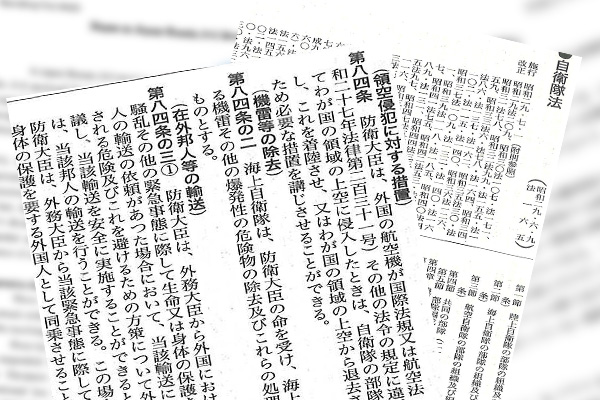On August 26, a Chinese Y-9 intelligence-gathering aircraft violated Japan’s territorial airspace near the Danjo Islands in Nagasaki Prefecture for about two minutes. This was the first violation of Japan’s territorial airspace by a Chinese military aircraft.
Under international law, nations have full and exclusive sovereignty over their territorial airspace. The right of innocent passage, or the right to freely pass through the territorial waters of a coastal nation without harming its peace, order, or security, is not recognized in the territorial airspace. If a foreign military aircraft violates a nation’s territorial airspace, the nation is allowed to take measures to eject the aircraft or force it to land. If the aircraft does not submit itself to the measures, the nation can shoot down the aircraft. In recent cases, a Syrian MiG-29 in 2014 and a Russian Su-24 in 2015 were shot down by Turkish Air Force F-16s after entering Turkish territorial airspace.
“China has no intention of violating the territorial airspace of any country,” a Chinese Foreign Ministry spokesman said. “We hope you don’t read too much,” a Chinese Defense Ministry spokesman said. However, the Chinese action was a clear violation of Japan’s sovereignty. The Japanese government has to take a firm stance against such violation.
China’s salami-slicing strategy
I think there are three potential causes of the latest Chinese violation of Japan’s territorial airspace. First, it could have been a simple pilot error. Second, the Chinese could have dared to take an unusual action to collect electronic intelligence on the reaction of the Japan Self-Defense Forces. Third, China could have tried to find out the Japanese government’s responses and Japan’s public reactions in wake of the violation.
The third is the worst case for which Japan must be prepared. Depending on Japanese response, China may launch its favorite salami-slicing strategy to accumulate many small actions to change the status quo over time. China could be considering repeating its violation of Japan’s territorial airspace over the Senkaku Islands and seizing effective control of the islands from Japan.
Current law lacks provisions for shooting down foreign intruders
If a similar territorial airspace violation occurs again, will Japan be able to respond resolutely in accordance with international law? Japan’s weakness lies in its domestic law. Article 84 of the SDF Act stipulates that necessary measures can be taken to force a foreign aircraft intruding into Japan’s territorial airspace to land on Japan or leave the Japanese airspace. However, the Act lacks any provision that authorizes the SDF to shoot down the intruder that fails to comply with such Japanese measures.
When the SDF Act was enacted, the idea may have been that measures against airspace violations could be governed by international law since most violations would be carried out over high seas. Following subsequent deliberations at the National Diet, however, the interpretation that the SDF cannot take specific actions without explicit provisions has taken hold. The government once said in a statement to the Diet that Article 84 could be interpreted as authorizing the SDF to shoot down foreign aircraft violating Japan’s territorial airspace. However, judicial circles have been against such interpretation.
If the legal ground remains unclear, the SDF will not be able to respond resolutely to airspace violations. The latest violation should be taken as the beginning of China’s salami-slicing strategy in territorial airspace too. Japan must hasten the formulation of legal provisions to explicitly authorize the SDF to take resolute actions against airspace violations.
Kunio Orita is a member of the JINF Planning Committee and a special professor at Reitaku University. He is a retired Lieutenant General of the Japan Air Self-Defense Force.


